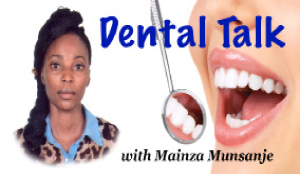 MORE often than not the word around most mothers is that for each time one is pregnant they lose a tooth.
MORE often than not the word around most mothers is that for each time one is pregnant they lose a tooth.
Pregnancy, just as it brings changes to other parts of the body, so does it in the mouth.
These changes are influenced by hormones. Due to this reason extra care needs to be taken to one’s oral health during this period.
The following are the effects pregnancy and its hormones have on your oral health.
*Pregnancy gingivitis
This occurs due to increased levels of progesterone. Gingivitis is inflammation of the gums, and presents as swollen, red, painful bleeding on brushing or flossing of gums. Symptoms of pregnancy-induced gingivitis go away once the baby is born.
*Periodontal disease
This is an inflammatory disease that affects the soft and hard structures that support the teeth. It occurs when bacterial infection develops in pockets below the gum line and damages the fibres and ligaments that hold the teeth in place.
The same hormones that increase ligament laxity in other joints during pregnancy can also cause increased mobility of the teeth.
Severe mobility, however, may be a sign of severe periodontal disease and should be evaluated by a dentist as soon as possible.
Periodontal disease can also affect the health of the baby, since women with periodontal disease are at higher risk of having babies early and with lower birth weights.
*Pregnancy granuloma
This is a common finding. The increased response of the gums in the presence of pregnancy hormones can cause irritated gum tissue to grow into a lumpy mass known as a pregnancy granuloma.
These usually start growing during the second trimester and are usually found between the teeth. They bleed easily and have a red, raw-looking rumpled surface.
If they are small and do not cause any problems, your dentist will probably advise you to wait and see if they go away after the baby is born.
If they do not go away after delivery, they can be removed surgically. When a pregnancy granuloma becomes too large, it can get in the way of chewing.
They can even cause too much bleeding and become painful. If this happens, your dentist will probably want to remove it right away and clean the teeth around the area thoroughly.
*Salivary flow changes
Hormonal changes can either cause an increase or reduction in salivary flow. Saliva is one of the primary defences against tooth decay.
Saliva contains proteins and electrolytes that buffer and neutralise bacterial acids. It also contains the minerals calcium and phosphorus, which help to remineralise teeth.
During pregnancy, saliva quality may decrease and show a decrease in buffering ability and calcium levels. During pregnancy, saliva may develop a lower pH or become more acidic.
This change has been shown to be associated with increased levels of decay-causing bacteria.
Decreased saliva flow can cause dry mouth or Xerostomia. Some women experience the opposite problem of excessive salivation, or Pryalism.
Any of these changes in saliva may increase a woman’s susceptibility to tooth decay, so maintaining good oral hygiene habits becomes particularly important.
Many women experience nausea or hypoglycemia during pregnancy, this necessitates the consumption of between-meal snacks. Commonly opted for are starchy foods that prevent tooth decay.
This increased frequency of food consumption and increase in starchy intake can promote tooth decay by increasing the acid production of decay-causing bacteria.
Morning sickness can cause problems with oral health if the nausea makes it difficult for the pregnant woman to use a toothbrush or floss.
Some women are so sensitive that they have a difficult time tolerating anything placed in the mouth.
Some can’t stand the smell of tooth paste and opt out of brushing their teeth.
This in turn leads to poor oral hygiene leading to increase in disease state. Some women in their third trimester experience severe heartburn or esophogeal reflux which propels stomach acid up into the mouth. Stomach acids irritate the gingival tissue as well as tooth enamel.
The enamel becomes thinned and eroded rendering tooth susceptible to dental caries.
It is of utmost importance to keep good oral hygiene during pregnancy by brushing, flossing use of mouth wash.
Chewing sugar-free gum plays a role by preventing dental disease. Eating a healthy diet consisting of B vitamins, Folic acid, vitamin C and calcium helps the oral and overall health of the pregnant woman and thr unborn child.
It is important to continue going to the dentist while you’re pregnant and to follow your regular dental care schedule.
Finally, it is worth noting that visits to the dentist, pregnant or not, are of utmost importance.
Comments: nzamai@yahoo.co.uk






